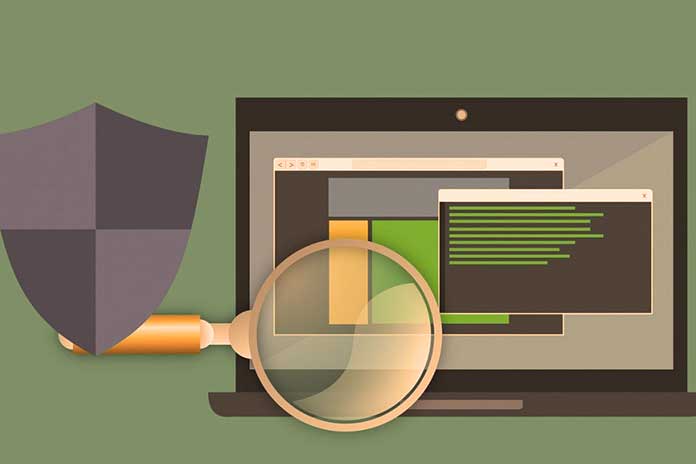We have taken a closer look at standard antivirus programs for you. The number of viruses, Trojans, and malware is almost incalculable. And day after day, several malicious programs are added, some of which pose a severe threat: They nest on your PC or Mac in the form of dangerous encryption Trojans or annoying malware and can cause immense damage. This can be remedied by an antivirus program that protects you from malware as a constantly active guard. Find out which antivirus program is recommended and how well free tools perform.
What Protects Better: A Free Or Paid Antivirus Program?
When it comes to the pure detection rate of malware and real-time protection against viruses, Trojans, and malware, free virus monitors are much better than commercial programs. You can track down malware just as accurate but only offer a reduced range of functions. On the other hand, purchase programs can score points with the following:
- A secure browser that protects you from financial harm when banking online or shopping on the Internet.
- An enclosed emergency CD with a bootable live system and integrated virus scanner. If there is malware on the hard drive, you can be detected and eliminated with this data carrier before you damage your operating system.
- Protection for other operating systems, such as Android, iOS, or macOS.
Aside from free and paid antivirus programs, Microsoft offers recommended essential protection
With its Windows Defender, which is firmly integrated into Windows 10. The detection rate is on par with programs from Bitdefender, Kaspersky, and Symantec, but it also offers two key advantages:
- Windows Defender hardly slows down your PC, while a third-party antivirus suite consumes significantly more system resources.
- The Defender can also score points in terms of compatibility: With antivirus programs from third-party manufacturers, it can sometimes happen that a harmless but all the more critical Windows system update is blocked and not installed.
Which Antivirus Program Is Particularly Recommended At The Moment?
When it comes to pure recognition performance, both the paid and the free tools achieve a value of 100 percent. So it is common for a relatively unknown manufacturer, such as AhnLab at the moment, to be able to put the top dogs from Avira, Bitdefender, Symantec, and Co. in their place. Instead, it would help to base your decision on which features you need. Integrated solutions such as the Windows Defender or another free antivirus program offer adequate essential protection.
If you don’t want to encrypt your data without a secure browser for online banking or need a fully configurable firewall, it’s worth looking at a paid antivirus suite. Manufacturers such as Bitdefender or Kaspersky usually offer several program packages with different scopes of services in various price ranges. Tip: nobody likes to buy a pig in a poke. Manufacturers like Avira offer them an upgrade option for precisely this reason. After installing the free version, you always have the opportunity to upgrade to a paid package with more features. Only the aggressive advertising that pops up in the free version is annoying.
Operating Systems Other Than Windows Are Also At Risk From Malware!
Apple users like to point out that there are no problems with malware under MacOS. A fallacy! Viruses and Trojans are also circulating for Macs, which users can certainly catch via infected email attachments or when surfing the Internet. However, an antivirus program is optional because macOS has integrated essential protection. Protect detects most of the threats and runs unobtrusively in the background, so most users hardly notice anything. In addition, MacOS is a relatively unattractive target for hackers due to its less widespread use. However, if you buy an antivirus suite that includes antivirus for macOS, you will go right by installing it.
How Vulnerable Are Mobile Operating Systems Such As Android Or iOS?
iOS is considered to be particularly secure – and rightly so. Apart from a few vulnerabilities that have since been fixed, as most recently in 2019, iOS is highly secure and, thanks to the sandbox principle, can hardly be cracked by a virus or Trojan. Therefore, the security solutions found in the App Store are mostly limited to secure surfing and protecting one’s privacy – also because Apple does not grant software manufacturers deeper access to the iOS program code.
Only a so-called jailbreak, with which you open an iPhone or iPad for third-party apps, represents a risk for the operating system. Android smartphones and tablets are somewhat more vulnerable, although the threat level is significantly lower than is widely assumed. A famous trick to foist malware on users that secretly mine cryptocurrencies or tap your bank and contact details: Infected apps from Google’s Play Store. However, for some time now, Google has been making significant efforts to remove these apps precisely. Furthermore, Google offers its security solution for all Android versions from 4. X with Play Protect.
An antivirus program is the most crucial protective barrier to protect your PC from dangerous malware. Even the free tools, such as those from Avira and the virus monitors integrated into Windows and MacOS, offer surprisingly comprehensive protection against malware. If an infection does occur, remove the malware using an emergency CD from the manufacturer or a self-made rescue data medium.
Also Read: How To Overcome Network Security Threats


